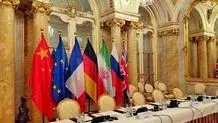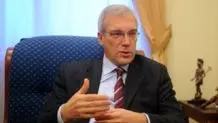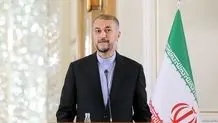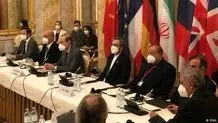What to expect from Mora visit to Tehran?
The EU's coordinator for the Vienna talks arrived in Tehran on Tuesday for talks over how to proceed with the Vienna negotiations after a two-month break raised alarm bells about the possible failure of the stalled talks.
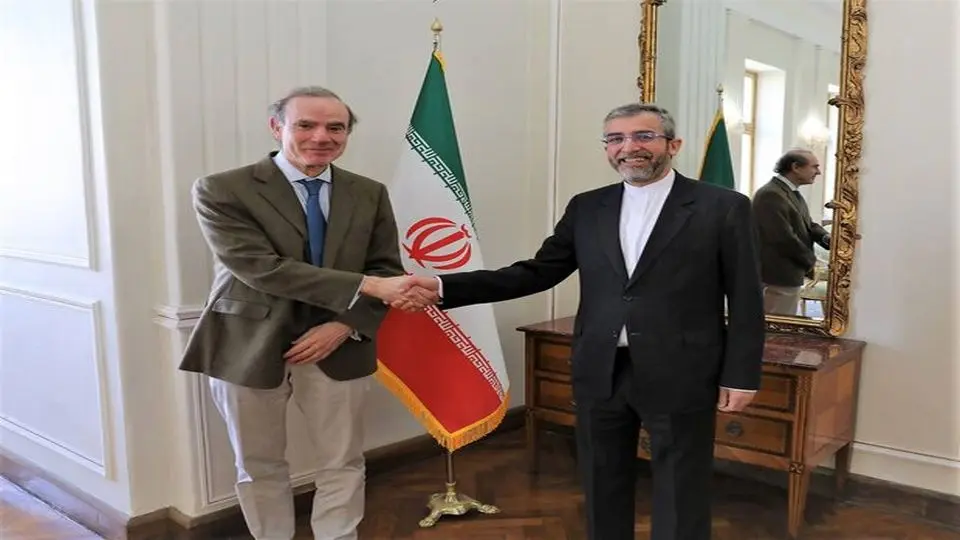
MEHR: The EU's coordinator for the Vienna talks arrived in Tehran on Tuesday for talks over how to proceed with the Vienna negotiations after a two-month break raised alarm bells about the possible failure of the stalled talks.
Enrique Mora’s visit comes as the EU foreign policy chief, Josep Borrell, is pushing for resuming the Vienna talks over reviving the 2015 Iran nuclear deal, officially known as the Joint Comprehensive Plan of Action (JCPOA), as soon as possible.
He said the current stalemate cannot continue. “We cannot continue like this forever,” he said.
In a bid to get the talks going again, the EU foreign policy chief said he was dispatching Mora to Tehran in what he described as a “last bullet” push. In remarks to the Financial Times, Borrell said he is pushing for a “middle way” on the US designation of the Islamic Revolution Guards Corps (IRGC) as a foreign terrorist organization.
In the last round of the Vienna talks which was concluded nearly two months ago, Iran demanded that the United States remove the IRGC from its terrorist list, among other things. The US refused the Iranian demands and the talks ground to a halt.
Borrell said the EU is going to strive for a middle ground on the IRGC designation. Borrell is considering a scenario whereby the designation on the guards is lifted, but kept in place on other parts of the organization, according to the Financial Times.
In Tehran, Mora is expected to present a new initiative to break the deadlock over the IRGC issue. Qatari newspaper Al-Araby Al-Jadeed has said Mora was about to visit Tehran a few weeks ago, but the latter did not show enough desire to complete the visit, “because it did not bring anything new in response to Iranian demands regarding the remaining issues.”
Citing Iranian sources, the paper added that the approval of Mora's visit “came after a European talk about the existence of what could be considered a US-European initiative to push the negotiations towards resolving the remaining issues.”
According to Al-Araby Al-Jadeed, Iran is seeking to push the negotiations forward and move the stagnant waters to reach a strong agreement, and it has agreed to the visit with this motive.
They said that the EU coordinator will stay in Tehran until Friday, and during the days of the visit, he will engage in intensive rounds of negotiations with the chief Iranian negotiator, Ali Bagheri Kani, in addition to other meetings with Iranian officials including Foreign Minister Hossein Amir Abdollahian.
Ali Shamkhani, the secretary of Iran’s Supreme National Security Council (SNSC), said on Tuesday that Iran is moving ahead with the Vienna talks to remove “the cruel sanctions” and Mora’s visit is in line with that objective.
Nour News, a media outlet close to the SNSC, has said that the visit can be a step forward, noting that reaching a deal is still possible. “Reaching a strong, lasting, and reliable agreement is possible but requires realism on the part of Washington and learning lessons from the mistakes that created today’s complicated circumstances,” it said.
But the success of the Mora visit will be determined to a large extent by what he bring forward during his stint in Tehran. Iranian Foreign Ministry spokesman Saeed Khatibzadeh said this week that Mora’s main task will be to convey messages between Iran and other negotiating partners.
One message would almost certainly be the offer Borrell has made on the IRGC. But this offer, which seems short of fully meeting Iran’s demand, is unlikely to lead to a breakthrough in the talks. Khatibzadeh implied that in his recent presser.
Underlining Iran’s commitment to concluding the talks, the spokesman said, “If America gives back to us what it took from us and accepts the Iranian nation’s trampled rights, we can sign the deal the day after Mora returns to Vienna. Mora’s visit will bring these talks back on the right track.”
Whether Mora would succeed in his efforts to break the ice remains an open question. Over the last two months, he has been in close contact with Iranian chief nuclear negotiator Bagheri Kani. Therefore, there must have been something important that required him to travel to Tehran in person. Mora’s schedule includes a meeting with Bagheri Kani. But he also requested meetings with officials outside the foreign ministry, possibly Shamkhani. As of this writing, it’s not clear yet if Mora would meet officias other than Bagheri Kani.

